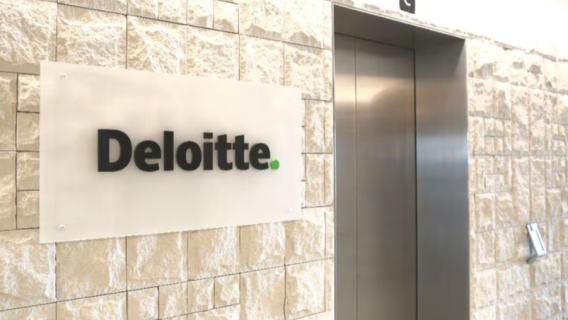
Deloitte’s eventual apology: With damage control, timing is everything
After more than a week of damaging headlines, Deloitte Australia has issued a media statement about the $440,000 AI report debacle. As Sally Branson explains, the apology ticks some of the right boxes on paper, but the timing raises serious questions about their response capabilities.

Deloitte used tax-payer money to provide AI slop
For a firm that advises others on managing reputation risks, taking over a week to respond publicly while the story gained momentum feels remarkably tone-deaf. Even with the initially slow news uptake, crisis communications 101 tells us that silence creates a vacuum that others will fill, usually not in your favour.
As I wrote last week, this scandal managed to hit Australia’s three biggest nerve points simultaneously: taxpayer dollars, AI distrust, and our cultural hatred of bludgers. The $440,000 price tag for what appears to be unchecked AI-generated content validated every fear Australians have about both artificial intelligence and expensive consultants taking taxpayers for a ride.
RELATED: Deloitte’s $440,000 AI scandal hits Australia’s three biggest nerve points
The partial refund somehow made everything worse, creating the impression of corporate damage control rather than genuine accountability. When organisations invest in external consultants, they’re making a deliberate decision to supplement their skills base with specialist advice and expertise. That investment only makes sense if they’re getting a quality product that represents genuine expertise, not sophisticated copy-and-paste work.
The no holds language “dodgy” “very poor” “appalling” “unacceptable” used by government officials during Senate estimates hearings last week shows just how seriously this has damaged relationships. When bureaucrats and ministers are publicly criticising a major contractor while refusing to rule out future work, you know the behind-the-scenes conversations are even more brutal.
What makes this worse is the revelation that Deloitte initially told government officials the errors were simply “transcription issues” when they were actually caused by AI. Then they falsely claimed to the Department of Finance that bureaucrats were aware AI was being used, when they weren’t. This isn’t just about poor quality control; it’s about misleading clients about fundamental aspects of the work.
While Deloitte’s statement finally acknowledges that “errors occurred from the use of AI” and admits “appropriate review and oversight processes were not followed,” the media statement could have been more detailed. Given the seriousness of the allegations and the week-long delay, stakeholders deserved more transparency about what went wrong, how many people were involved, and what specific changes have been implemented.
Enjoying Mumbrella? Sign up for our free daily newsletter.
The corporate-speak language about taking “appropriate actions” and “reinforcing existing guidelines” feels inadequate when you’re dealing with fabricated academic references and made-up Federal Court quotes.
What’s been fascinating to watch is how Deloitte’s competitors have seized this moment to promote their own AI policies and rigorous review processes. EY, KPMG, PwC, McKinsey, and Boston Consulting Group have all issued statements emphasising their ethical AI use and quality controls.
Although Deloitte’s actions can not help but have a chilling effect on every single person who consults, there is an element of competitive gold for Deloitte’s rivals. It’s a perfect example of how we can all learn from comparison when a big player makes a mistake. One firm’s reputation crisis becomes everyone else’s opportunity to demonstrate superior standards and processes.
I’m hoping Deloitte is doing a much better job behind the scenes than their public response suggests. Right now, their stakeholder mapping should be working like never before.
Every government client will rightly be focussed on the AI slop, asking: how many other reports have we received from Deloitte that contain AI-generated content? How much of our contracted work has been produced this way? These are the conversations that will determine Deloitte’s future in the government consulting space, and they’re happening in boardrooms and departmental meetings, not in press releases.
The firm’s relationship managers should be working overtime to reassure clients, provide transparency about their processes, and demonstrate the additional safeguards they’re implementing. This is where the real reputation recovery work happens, in one-on-one conversations with the stakeholders who actually make procurement decisions.
This incident has already become the reference point for AI procurement disasters. It validates public scepticism about both artificial intelligence and expensive consultants, making future innovation politically toxic and forcing the entire industry to defend its value proposition.
For government AI adoption, this sets back digital initiatives by years. When premiers and ministers are already cautious about new technology spending, incidents like this make every AI investment a potential political liability.
The key lesson here is that we can always be learning from comparison. Deloitte’s misstep has created a teaching moment for every organisation using AI in professional services. The importance of human oversight, the need for rigorous quality controls, and the critical nature of stakeholder communication have all been highlighted in the most public way possible.
For crisis communications professionals, this case study also demonstrates why timing matters so much in reputation management. A week’s delay in responding publicly, combined with initially misleading explanations to clients, suggests either poor crisis preparedness or a fundamental misunderstanding of how modern accountability works.
The sequence matters – deliver questionable work, get caught, mislead clients about the cause, stay silent for a week, then issue a careful but limited apology. Each step compounds the reputation damage and makes recovery more difficult.
When trust in institutions is already fragile, and public patience with corporate excess is already thin, this approach is a masterclass in how not to handle emerging technology responsibly.
The real test for Deloitte won’t be their public statements, but whether their behind-the-scenes stakeholder work can rebuild the trust that their delayed and inadequate response has further eroded.



